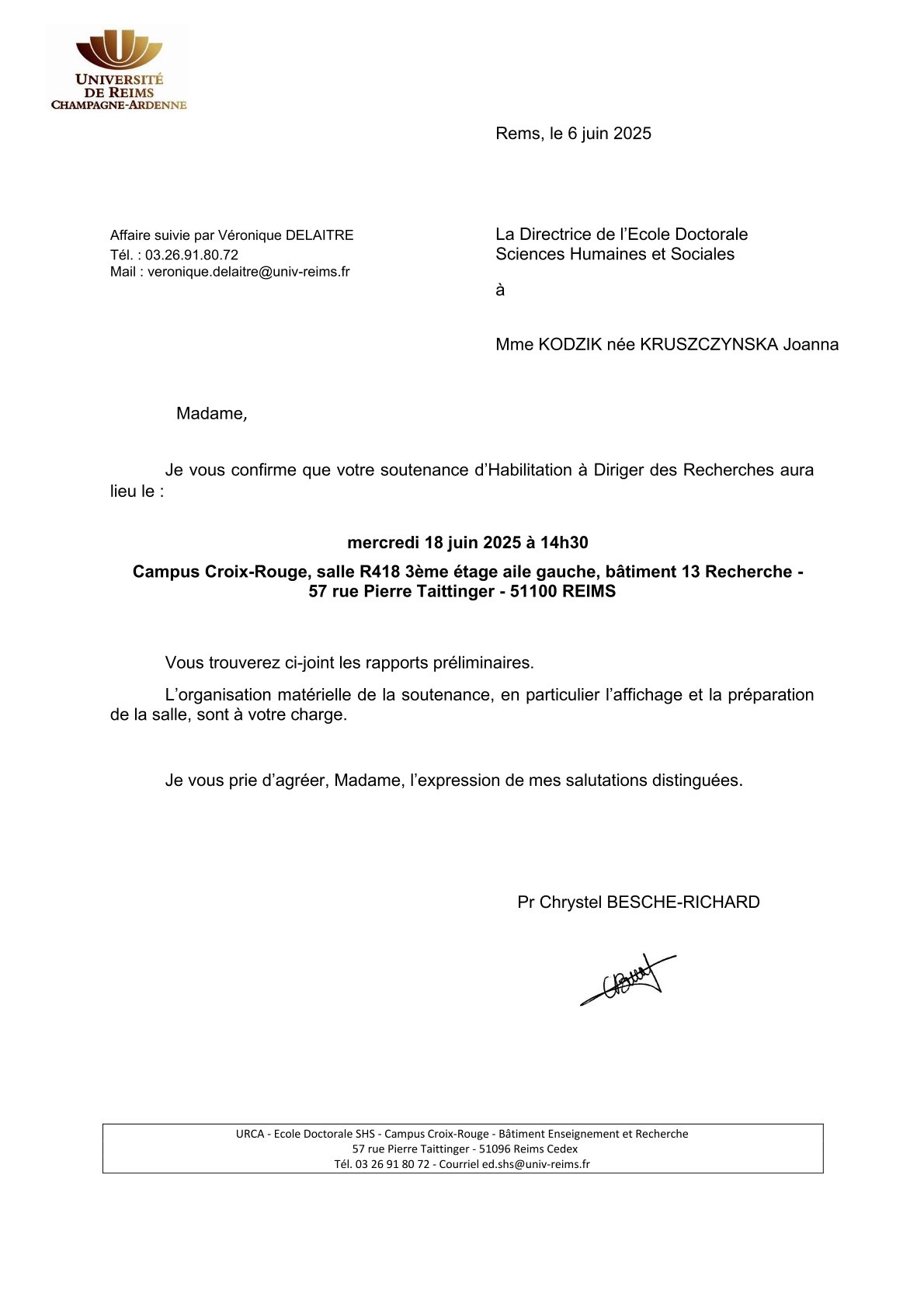Junior Full Professor Joanna Kodzik will defend her habilitation, HDR Habilitation à diriger des recherches, on 18 June 2025 at the University of Reims Champagne-Ardenne.
The dossier entitled “From symbolic communication to the reception of Arctic knowledge in Europe in the modern era“ (“De la communication symbolique à la réception des connaissances arctiques en Europe à l'époque modern”) reflects her work on construction of European society by symbolic communication and performance, transfer of ideas and hybridization of identities and cultural mobility between Europe and the Arctic.
Her new manuscript entitled “Cultural mobility and constructions of the European far north in German Protestantism in the 18th century” (part of the dossier) is dedicated to the history of the circulation of knowledge from – Greenland, Sápmi and Iceland – within the German-speaking religious and scholarly communities in the early modern period. It brings the history of mobility and communication between the Arctic and Europe in the 18th century to the attention and traces the constructions of the European Arctic in travelogues and scholarly discourses, which are understood as a consequence of cultural mobility. The focus is on the earliest and most intensive production of knowledge from cultural contact in the European Arctic and its reproduction in translations and scholarly discourses. The study is based on almost never published and barely analysed handwritten sources written in German by the Moravian missionaries that have remained hidden since the 18th century. It focuses geographically on the historical, German-speaking region and in terms of the history of ideas on Protestantism. Firstly, the study allows to understand how European knowledge, religious ideas, the European self-image of the travellers and Moravian missionaries and their own observations shaped their constructions of the European Arctic. Secondly, it analyses the process of the reception of the eyewitness accounts among German-speaking scholars. It provides answer to the following questions: What elements from the eyewitness accounts constructed the discourse about the Arctic among German-speaking scholars in the 18th century? Who received the new knowledge from the Arctic and in what context, and how was it incorporated into their own worldviews and theories to legitimise them?


